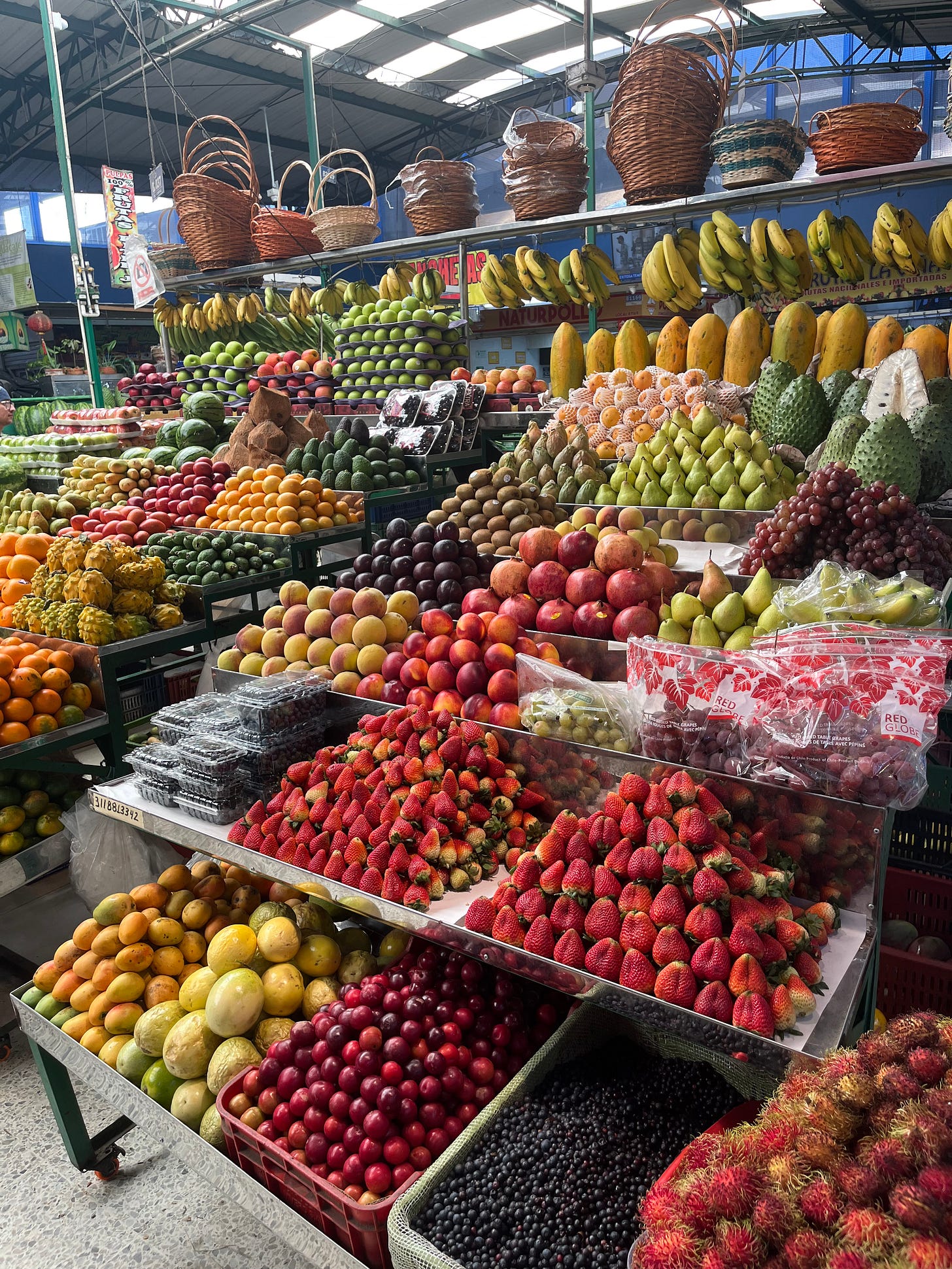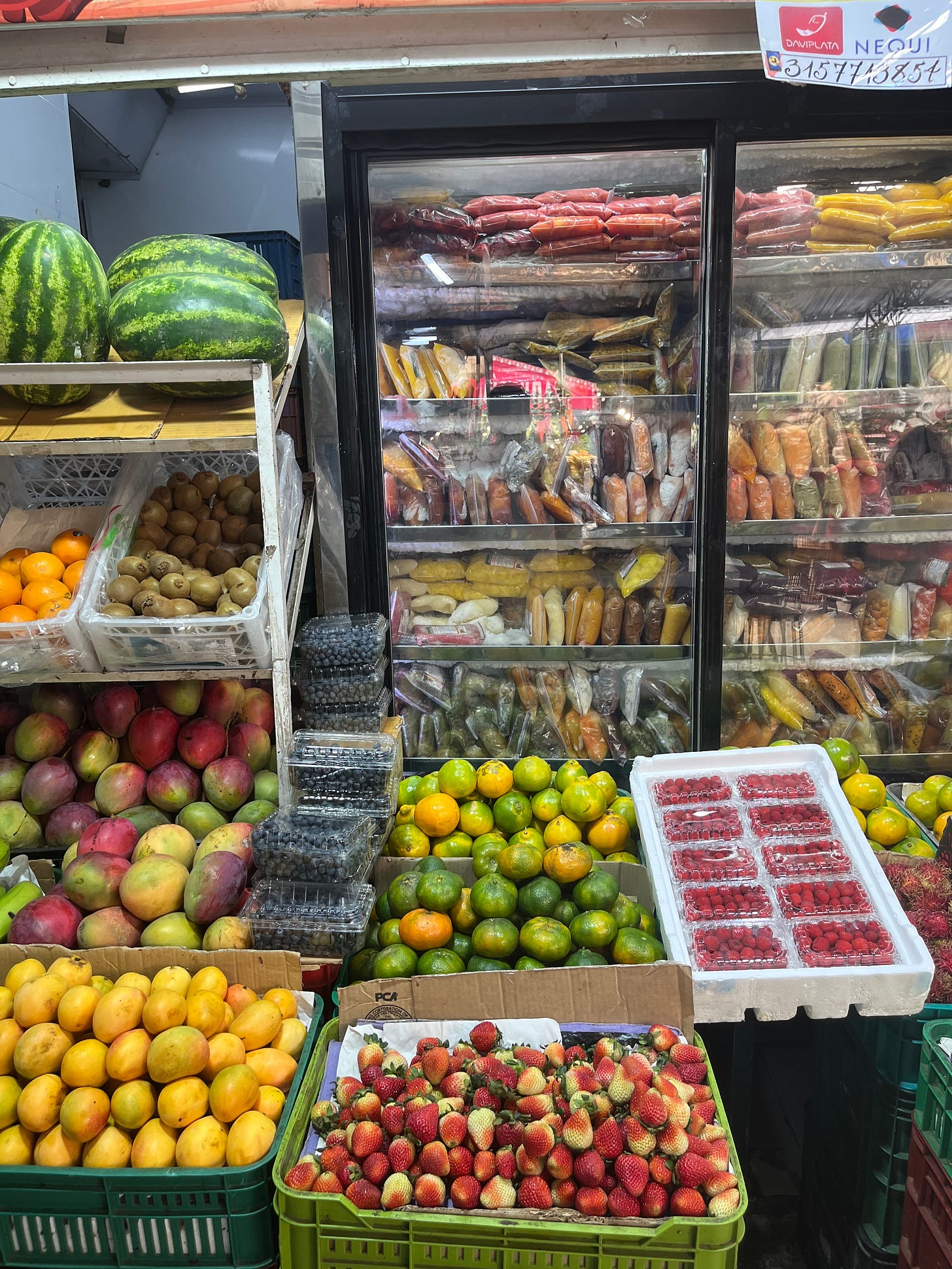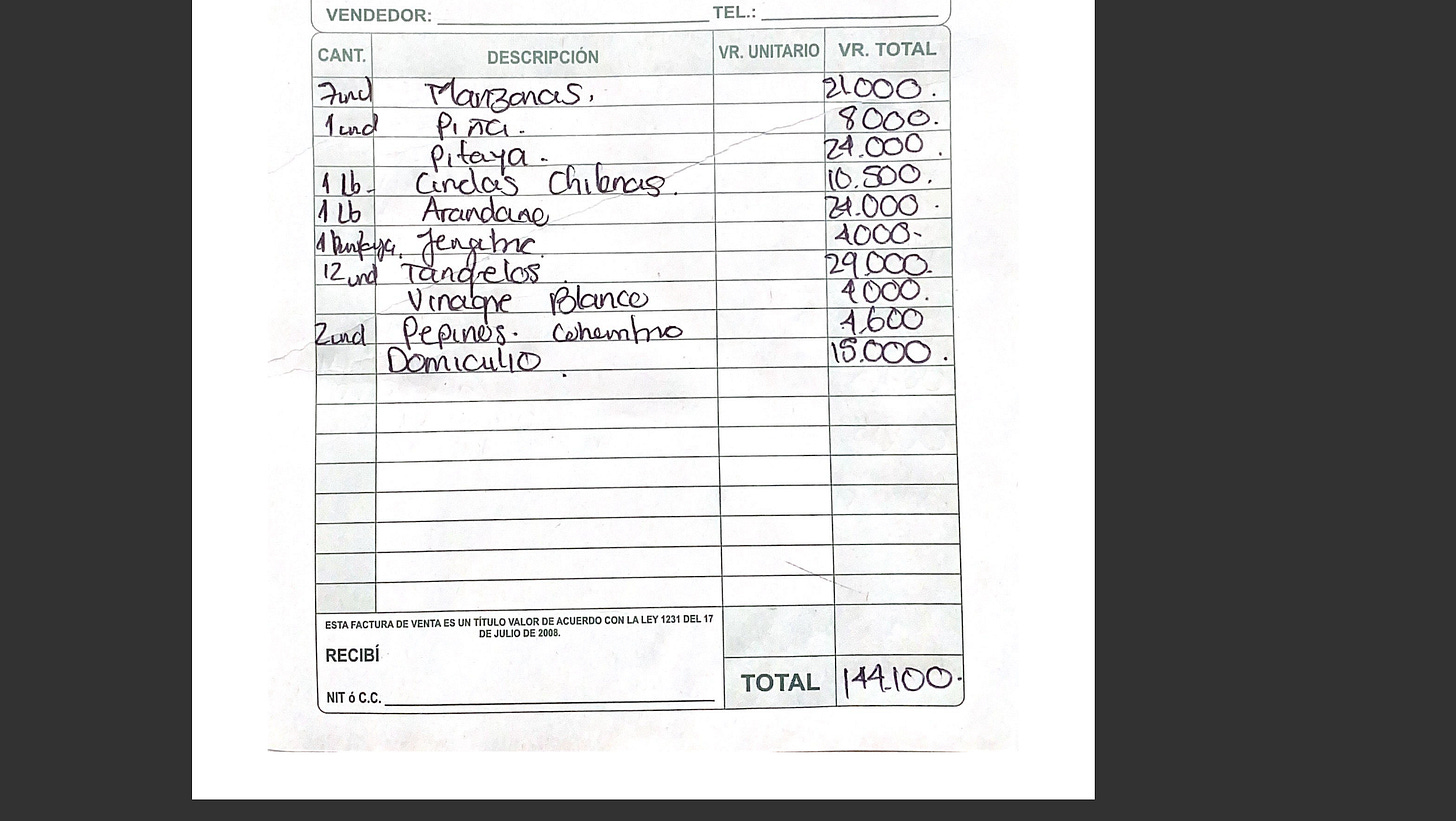Today, I'm going to tell you something I learned while buying onions at Paloquemao. Paloquemao is a very famous market plaza in Bogotá, possibly the most famous in the country, where people go to buy their fruits and vegetables of the best quality and at the best prices.
Recently, I realized that in Colombia, people categorize and charge you more not only for being a foreigner but also based on your income or the place where you live. I live in Salitre, which is an area near Paloquemao in the city of Bogotá. A neighbor told us that it is cheaper there and, of course, it is cheaper. Generally, everything is of better quality as well.
I have always been a fan of Rappi; I pay for Rappi Premium because I constantly order deliveries. I find it tedious to go grocery shopping, partly because I don't have a car and feel like I waste a lot of time. I don't cook much either; my girlfriend does. She lives with me.
She always asks me to accompany her grocery shopping because it's important to her and other reasons. My girlfriend can hardly do anything alone, or well, she can, but she wants me to accompany her everywhere. I go with her, but honestly, I don't find it very exciting. I solve everything with Rappi, from condoms to an onion or whatever I need.
But well, the downside of the Rappi app is that you can't choose the products yourself. The delivery person picks what you order, but that doesn't mean they take the time to choose the cheapest or the best quality items. My dad always taught me how to select fruits and vegetables, avocados, and so on. He takes the time to pick the best fruit or vegetable by touching them directly.
So, a neighbor told us not to buy from Éxito or Carulla or any of those stores but to go to Paloquemao because it's near the Salitre neighborhood. In my mind, I thought Paloquemao was a dangerous place. I always heard on the news that thieves and everyone were taken to Paloquemao because there are some courts there, so I associated that place with danger, but it's not dangerous.
That's why I said, let's order delivery instead, and I realized they raised the prices of all the fruits and vegetables just because they associated the Salitre neighborhood with wealthy people. The quality is good, but the price went up. It's still cheaper than any chain store, but I hardly noticed the difference.
So, one day we decided to go to Paloquemao ourselves, and everything was cheaper. But you don't go there for the low prices but for the quality. We bought everything related to fruits, vegetables, and tubers: yucca, potatoes, etc. You can choose everything yourself, and there are always people willing to help you pick everything. I found it strange that everything has a price; it's like they make up the prices of things.
For example, they sell 1 pound of cilantro at a certain price, but if you ask for just one sprig or something immeasurable, they calculate the price. They sell everything however you want it, one leaf, whatever, they adjust everything, but I don't know how they calculate the price like that. There are standard prices, but if you want something specific, they'll sell it to you and select it. Everything is of impressive quality, everything shines. I don't know, the fruits and vegetables look incredible.
In Carulla (a "rich" chain store), fruits and vegetables also look like that, but they are very expensive. It’s so expensive that people associate Carulla with a chain store where wealthy people shop. It’s absurd because it’s not that expensive, but let’s say that in Colombia, fruits and vegetables are of the best quality at an almost unbelievably low price. So people have always been used to shopping at market plazas and not in supermarket chains.
Something that caught my attention was that in Paloquemao, there were two Mexican restaurants run by Venezuelans. It’s very curious to go to a Colombian market plaza with Mexican restaurants run by Venezuelans, but it was good, and obviously, they have the best quality food products right there.
This shows that Colombian food isn’t bad because the products and ingredients are of very high quality. What's lacking is the preparation of the food—the technique. I feel that because Colombia is a poor country with a violent history, food preparation was never a priority; it was more important to eat than how the food tasted. In Argentina, the food is delicious because there was a period of great wealth in that country, which is evident from the infrastructure to the restaurants. Colombia has not yet experienced that economic boom to reach that level of gastronomy, but I hope that in the next 10 years, everything will improve with the abundant arrival of foreigners to the country.
I bought many things, and everything cost me 144,000 Colombian pesos (35 dollars).





